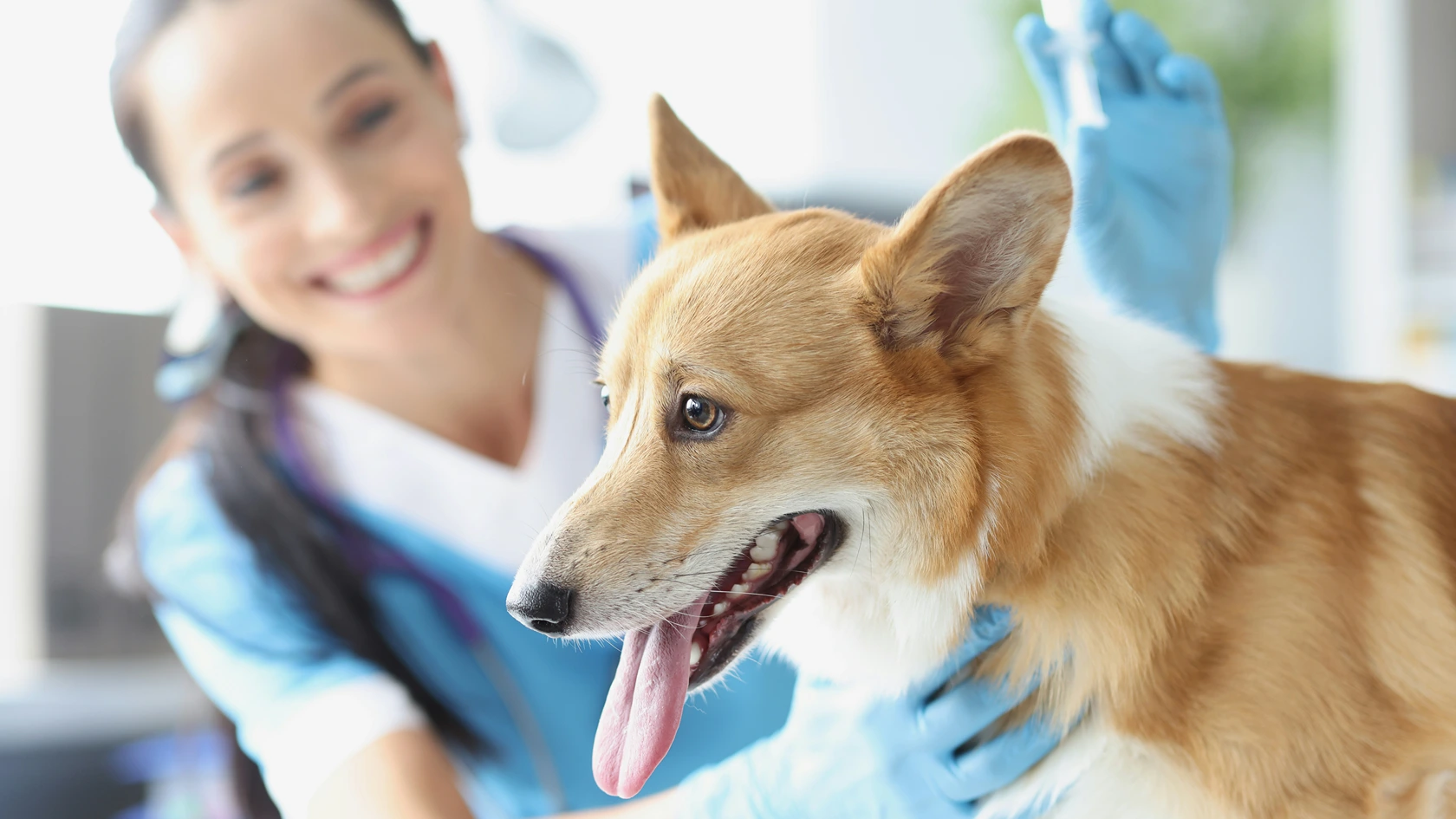TL;DR – Puppy & Dog Vaccines Guide
- Core vaccines (required for all dogs): Vaccines against distemper, parvovirus, hepatitis, and rabies are essential for every dog, no matter the breed or lifestyle.
- Non-core vaccines depend on lifestyle/exposure: Non-core vaccines like Bordetella, influenza, leptospirosis, and Lyme are recommended based on your dog’s activities and exposure risks.
- Puppy schedule: Shots begin at 6–8 weeks, with boosters every 3–4 weeks until 16 weeks to build strong early immunity.
- Adult dogs: Boosters are given every 1–3 years. Vets adjust schedules for senior dogs or those with special health needs.
- Side effects: Side effects are usually mild and don’t last long. The protection against serious, often fatal diseases far outweighs the risks.
Have questions? Contact us. We can help you create a tailored vaccination plan based on your dog’s health, environment, and lifestyle.
Which vaccines does your dog need to stay safe and healthy? Prevention starts with vaccines, and vaccines are the foundation of that. They help build your dog’s immune system, fight off infections, and reduce the risk of severe illness. From those first puppy shots to regular adult boosters, every vaccine helps keep your dog safe from serious and sometimes life-threatening diseases.
This veterinary guide explains core and non-core vaccines in detail so you can understand what your dog really needs and why each shot matters for their long-term health and safety.
Why is Vaccination for Dogs and Puppies Important?
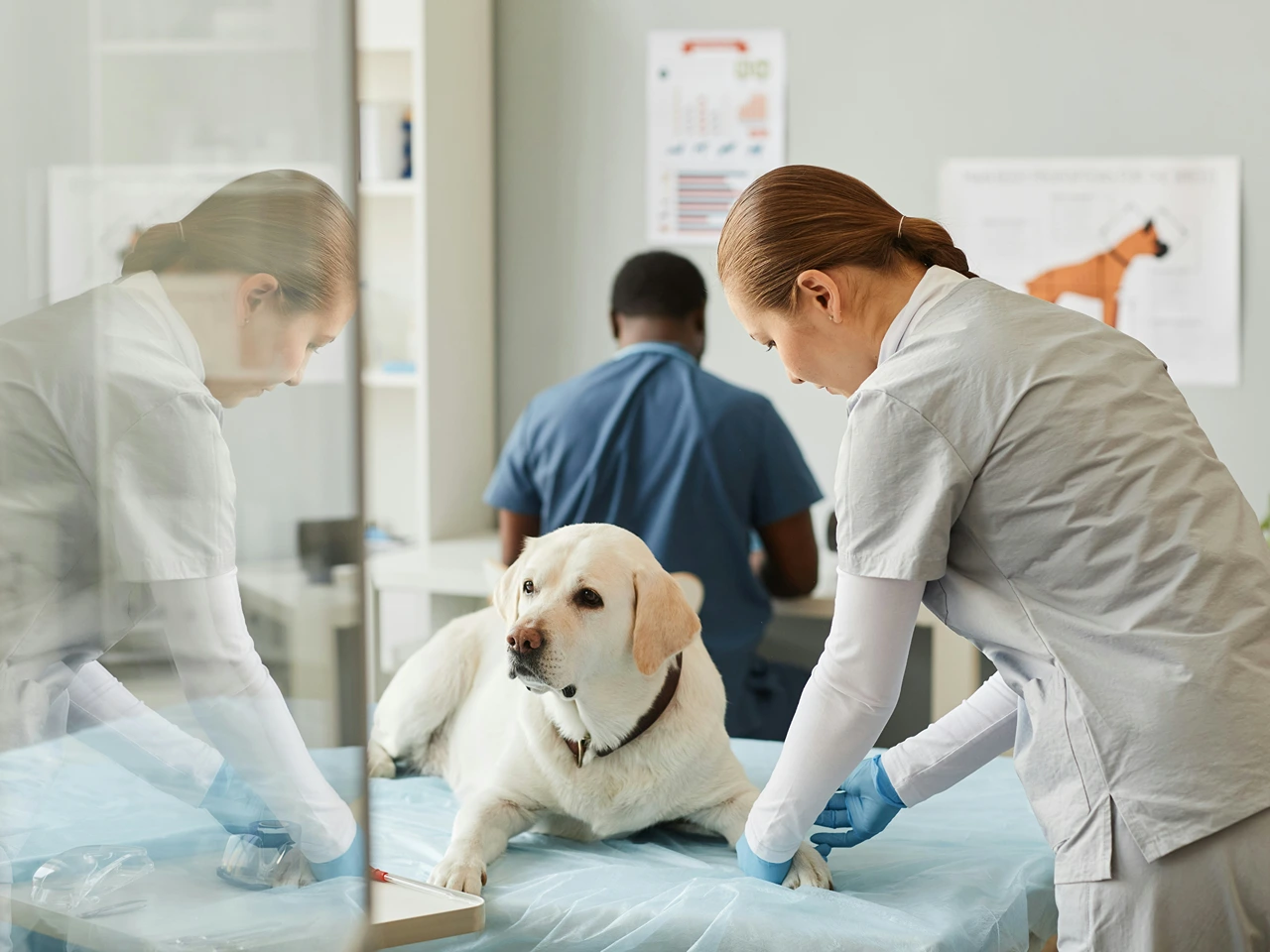
Vaccinating your dog is one of the best ways to keep them safe and protect everyone around them from serious infectious diseases. When your dog gets vaccinated, their body makes antibodies that strengthen their immune system, helping them fight off harmful viruses.
Even well-cared-for pets can be affected by highly contagious diseases, and an unvaccinated dog may unknowingly spread infections to other animals. Veterinarians play a major role in keeping your dog up-to-date on shots, guiding owners on which vaccines are essential for both growing puppies and adult dogs throughout their lives.
Core Vaccines for Dogs
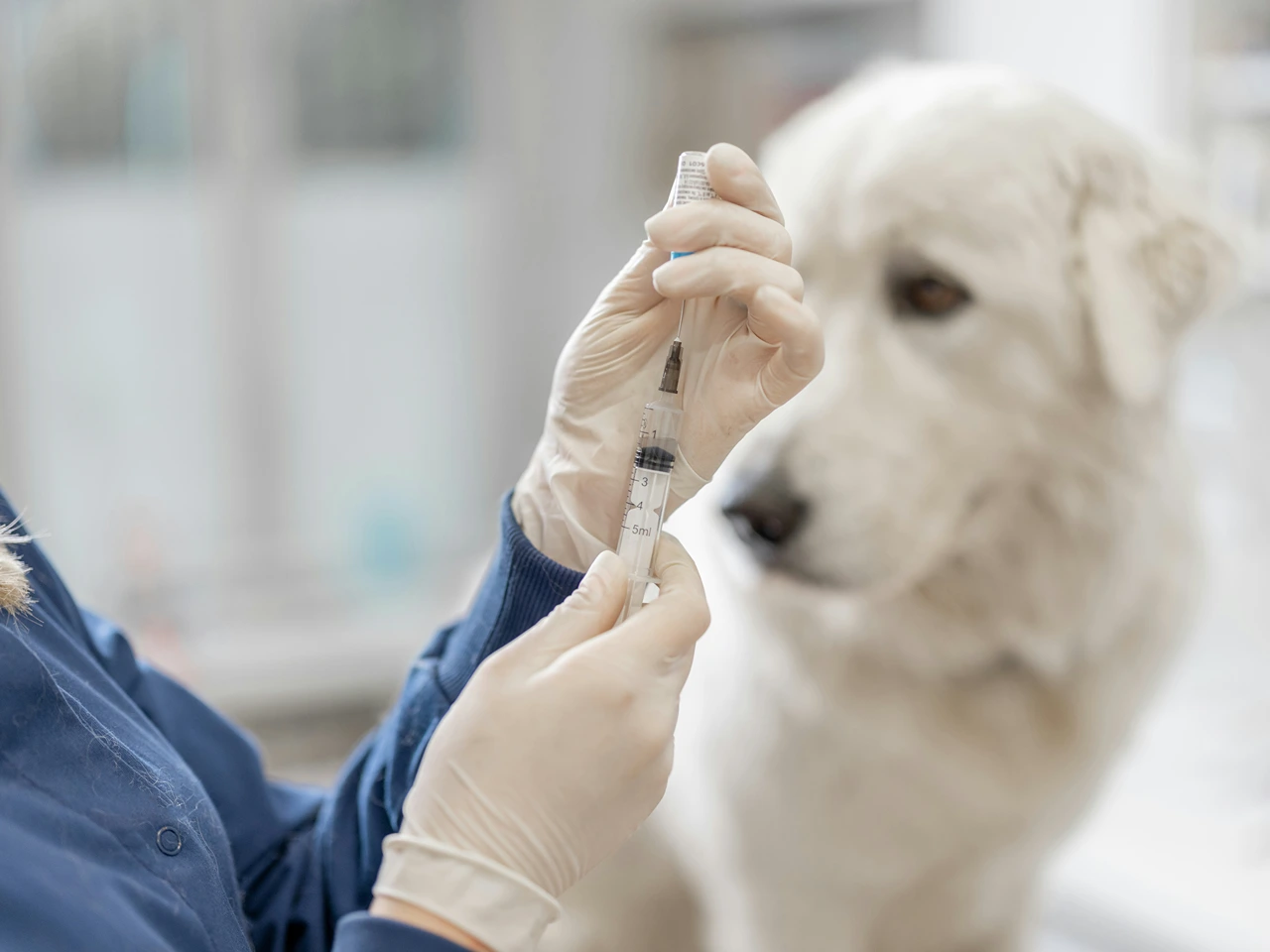
When it comes to protecting your dog, there are core and non-core vaccines, each designed to fight off specific preventable diseases. Core vaccines are considered essential for every dog, regardless of breed, lifestyle, or location. They are “must-haves” because they guard against illnesses that are often severe and highly contagious. Core vaccines help prevent:
Canine distemper
A viral disease that attacks the respiratory, gastrointestinal, and nervous systems. It can leave lasting damage or even be fatal, which is why vaccination is so important.
Canine parvovirus
You’ve probably heard of “parvo.” This viral disease spreads quickly and causes extreme vomiting, bloody diarrhea, and dangerous dehydration, especially in puppies.
Canine hepatitis
Also called canine hepatitis or infectious hepatitis, this virus targets the liver. It leads to fever, abdominal pain, and in many cases can become potentially fatal if left untreated.
Rabies
For rabies vaccinations, it's not optional since it’s required by law. Rabies spreads through the bite from an infected animal and is deadly to both dogs and humans, making this shot absolutely important.
A vaccine is given to trigger your dog’s immune system to build protective antibodies. For puppies, the first series of shots, often called DHP or DHPP, helps the puppy develop strong immunity. After that, boosters are given every 3-4 weeks until 16 weeks of age. Adult booster shots usually happen every 1–3 years, depending on the vaccine, to keep your dog protected and healthy for life.
Non-Core Vaccines
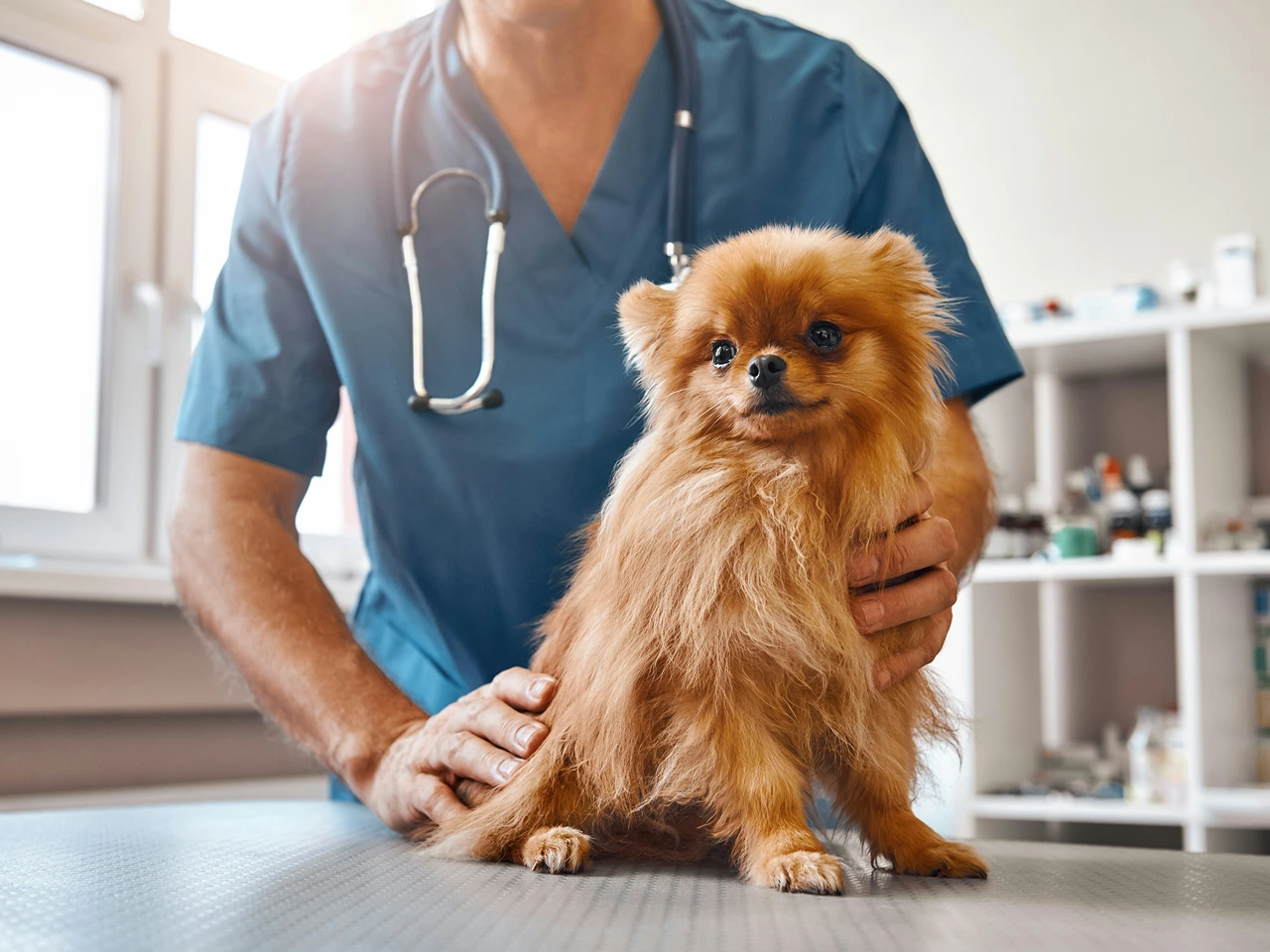
Core vaccines are a must for every dog, but non-core vaccines work a little differently. They’re given based on your dog’s lifestyle, environment, and travel habits. In other words, these vaccines are recommended for your dog if they’re at higher risk of encountering certain diseases.
Bordetella (known as kennel cough)
This contagious respiratory infection spreads fast in places like dog parks, training classes, or boarding kennels. If your pup spends time around other dogs, this vaccine is often a must.
Canine influenza
Often called dog flu, this vaccine helps protect social dogs that are frequently around groups of other pets. While not always life-threatening, it can make dogs very sick and spread fast in community settings.
Leptospirosis vaccine
Leptospirosis is a bacterial disease often picked up from contaminated soil or water. The leptospirosis vaccine is especially important for dogs who hike, camp, or may come into contact with wildlife.
Lyme disease
Spread through ticks, Lyme disease can cause joint pain, fever, and long-term complications. This vaccine is particularly useful if you live in or travel to tick-prevalent areas.
Vaccines are recommended for dogs based on their specific exposure risks. Your veterinarian is the best person to help decide which non-core vaccines your dog actually needs, keeping them protected without giving extra shots.
Typical Puppy Vaccination Schedule
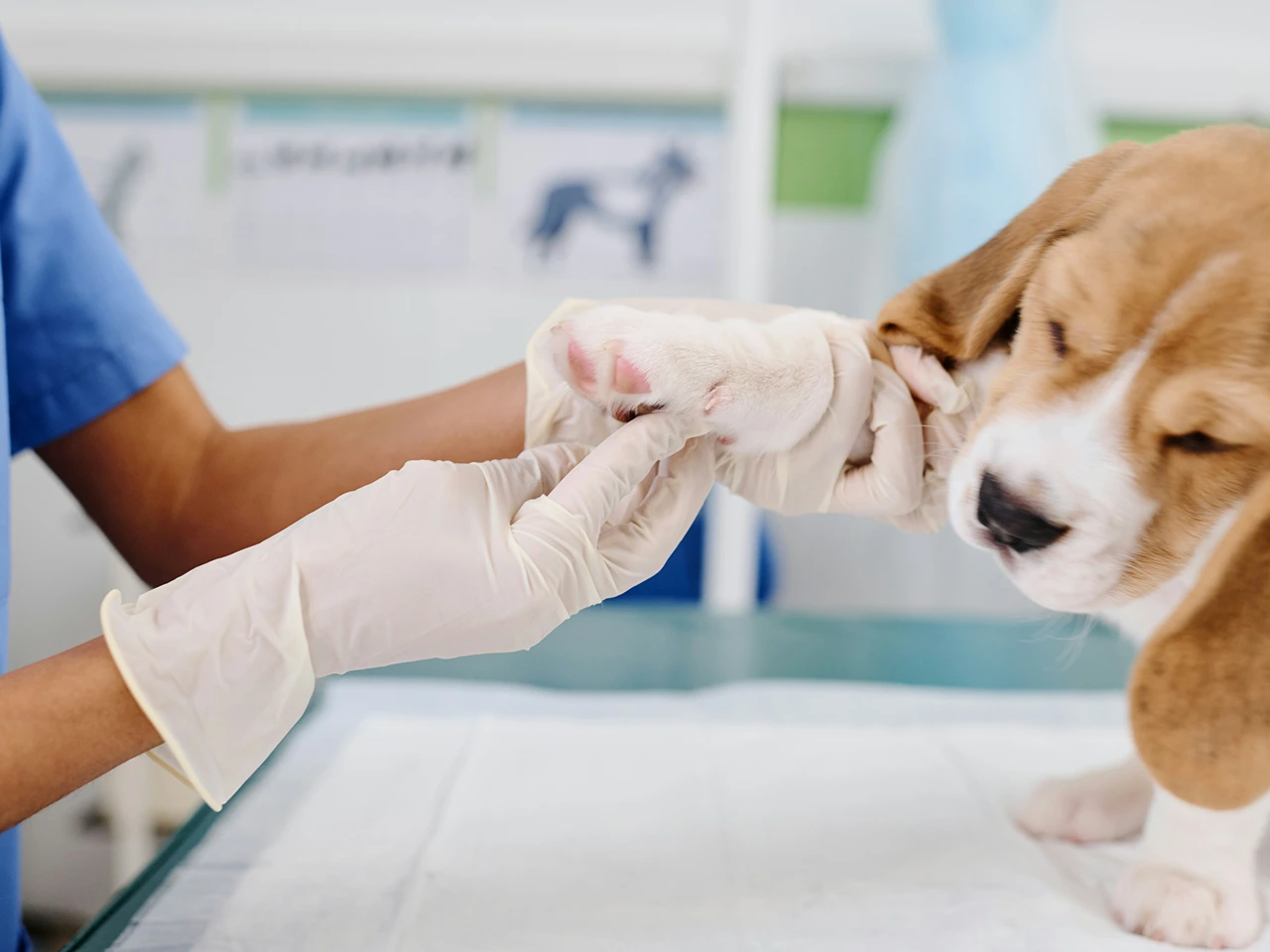
A well-planned puppy vaccine schedule is essential for building strong early immunity. Puppies usually start their first round of shots between 6–8 weeks of age, followed by a series of vaccinations at regular intervals to help their bodies develop proper antibodies.
- Critical timing windows: Young puppies still carry maternal antibodies from their mother, which can sometimes block vaccines from working effectively. That’s why the timing of each shot is so important.
- Series completion timeframes: For full protection, boosters are typically given every 3–4 weeks until the puppy reaches about 16 weeks of age. This gradual process helps the immune system build reliable, long-lasting defense.
- Healthcare provider coordination: Your veterinarian will design and adjust the puppy vaccine schedule based on your pup’s health, environment, and risk factors, making sure they stay protected and up-to-date.
Keep a detailed record of every vaccine your puppy receives to prevent missed doses. It can also help you when travelling or switching veterinarians.
Adult Dogs and Booster Requirements
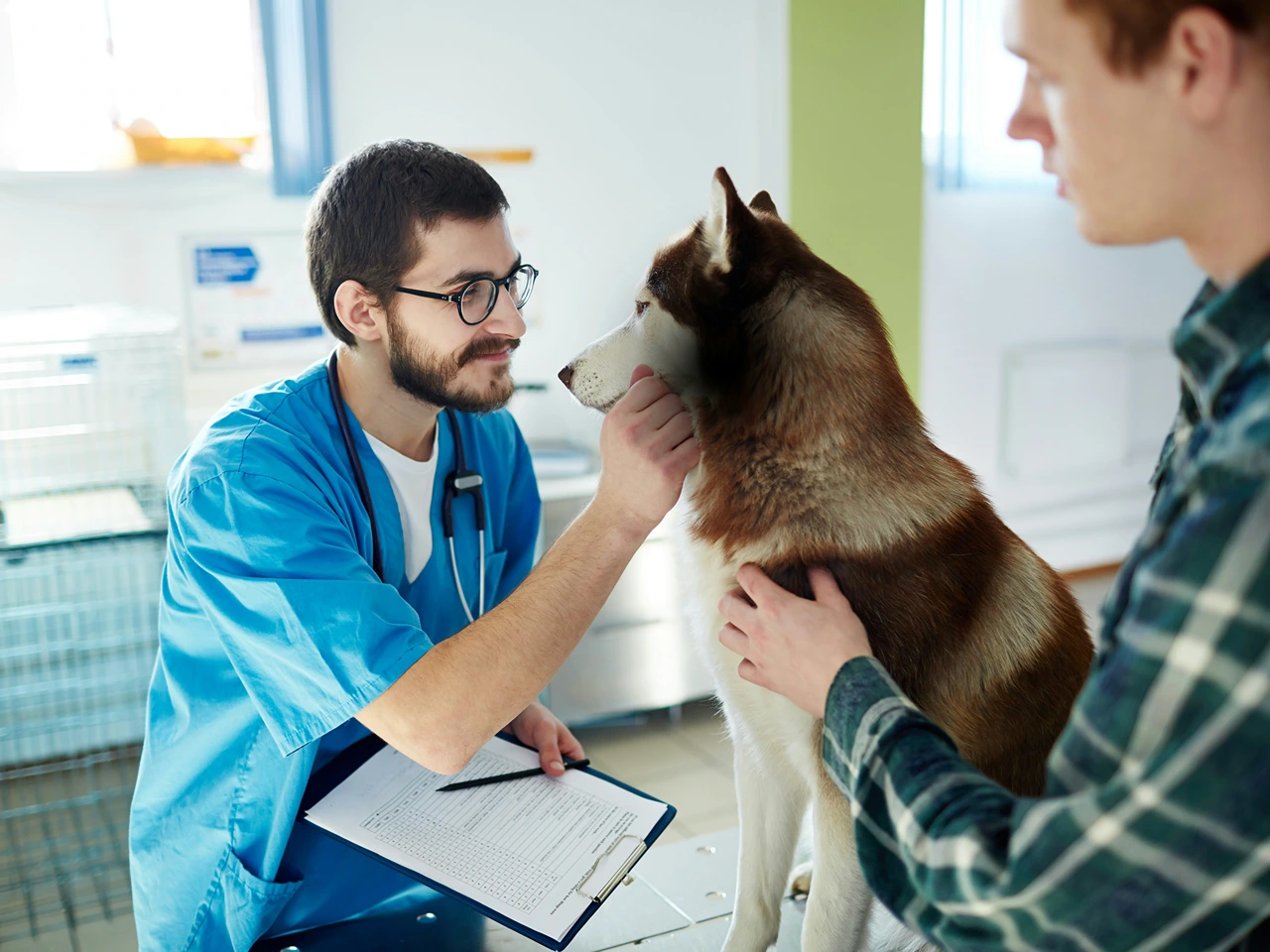
As puppies grow into adults, their vaccination needs change. While the early puppy shots establish immunity, adult dogs need booster vaccinations to maintain strong protection against infectious diseases. This transition ensures that your dog stays safe well into adulthood.
- Frequency recommendations: Most booster vaccinations are given every 1-3 years, depending on the specific vaccine. For rabies, if your dog is already up-to-date, a booster can often be scheduled every three years.
- Age-specific considerations: An older dog may require adjustments to their vaccination plan. Senior dogs with chronic conditions or weakened immune systems might benefit from a modified schedule.
- Health assessment needs: Your veterinarian will evaluate your dog’s overall health and lifestyle before deciding on the right booster timeline, making sure vaccines are both safe and effective.
Note: Not all vaccines last the same amount of time. Some provide long-term protection, while others require repeat doses to keep immunity strong and reliable. Consult your veterinarian for guidance.
Managing Vaccination Side Effects
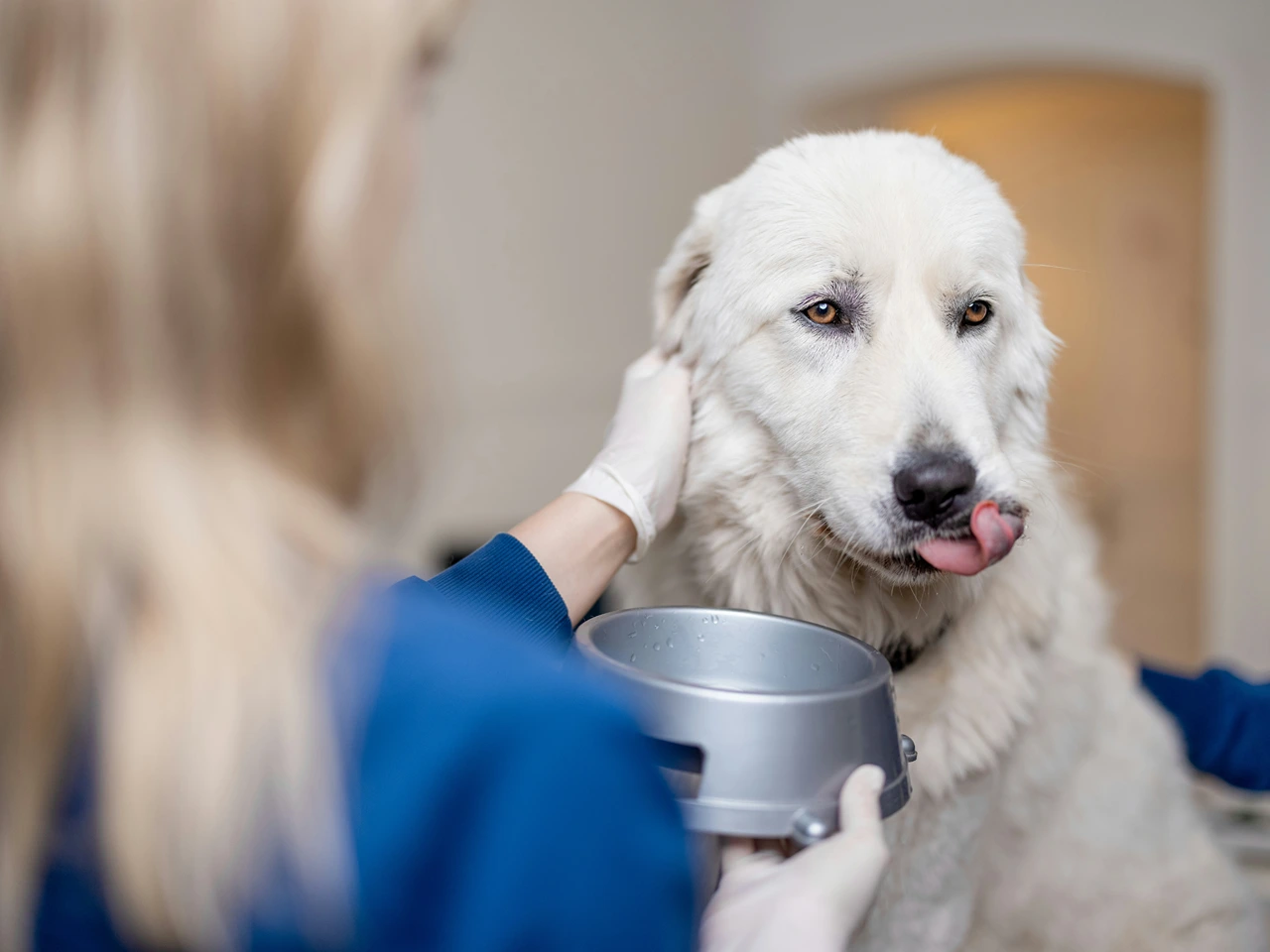
While dog vaccines are generally very safe, it’s important for pet owners to understand that serious side effects, though rare, can occur. More commonly, every vaccine may cause minor, short-lived reactions such as soreness or a mild fever. Knowing what to expect and how to respond helps keep your dog comfortable and safe.
- Temporary swelling at the injection site, mild lethargy, or even a reduced appetite for a day or two.
- After an initial vaccine or puppy shot, watch your dog closely for several hours. This is when most mild reactions appear, and monitoring ensures you catch anything unusual early.
- If your dog starts having persistent vomiting, diarrhea, hives, or trouble breathing, call your vet immediately. These could be signs of a more serious reaction that needs prompt attention.
- At home, just make sure your dog has plenty of water, a cozy spot to relax, and lots of love and attention until the mild side effects pass on their own.
- Although mild side effects can happen, the benefits of vaccination far outweigh the risks. Vaccines protect against dangerous and often fatal infectious diseases.
To keep things safe, try to schedule vet visits when you can stick around to watch your dog afterward. And following your vet’s wellness advice on care helps make vaccinations safer and more effective.
Final Thoughts
Vaccinating your dog is all about giving them the best shot at a long, healthy, and happy life. From those first puppy shots to adult boosters, each vaccine helps protect against diseases no pet owner wants to deal with. Some vaccines are a must for every dog, while others depend on your pup’s adventures, surroundings, and lifestyle.
Work closely with your vet to create a vaccination plan that fits your dog’s unique needs. At the end of the day, prevention is always easier than treatment. Ready to keep your dog happy and healthy? Contact us today to book their next vaccination!
Frequently Asked Questions
Why are dog vaccines important for my pet’s health?
Vaccines are the key to preventive care, they help keep your dog safe from serious and contagious diseases.
Prevent community outbreaks: When you vaccinate, you’re not only protecting your pet but also reducing risks for other animals.
Long-term health: Staying consistent with your dog vaccination plan helps avoid costly treatments later.
Support for social pets: For dogs that visit parks, groomers, or boarding facilities, vaccines help stop the spread of illnesses.
Protection against deadly viruses: The rabies vaccine is legally required and prevents a fatal disease that can spread to both dogs and humans.
Essential immunity boost: Core shots like the distemper vaccine help your dog’s immune system fight severe infections.
What is the typical puppy vaccine schedule I should follow?
A proper puppy vaccine schedule builds strong immunity during your pup’s most vulnerable months.
Early start: Puppies begin shots around 6–8 weeks, marking the initial puppy stage of vaccination.
Boosters matter: Each vaccine is given every 3–4 weeks until your pup is around 16 weeks old to make sure they’re well protected.
Core protection first: Early shots include parvovirus, adenovirus, and parainfluenza as part of the puppy plan.
Monitoring effectiveness: Because maternal antibodies can interfere, timing ensures the vaccines work properly.
Vet-tailored schedules: Your veterinarian will adapt the plan if your dog has special health or lifestyle needs.
Which non-core vaccines should I consider for my dog?
Non-core shots are given based on lifestyle, environment, and exposure risks.
Respiratory protection: Canine influenza vaccines are recommended for pets that frequently mix with other dogs.
Kennel cough prevention: Bordetella shots are key for dogs in training, boarding, or daycare settings.
Tick-related risks: Lyme protection may be suggested in tick-heavy areas for adventurous dogs.
Waterborne threats: A leptospirosis shot may be advised for pets that hike, swim, or explore outdoors.
Travel factor: Your vet may recommend additional dog vaccination options if your pet travels often.
What side effects should I expect after my dog gets vaccinated?
Most side effects are mild and temporary, but it’s helpful to know what’s normal after a dog vaccination.
Mild swelling: Some dogs may have a small lump at the injection site, especially after the rabies vaccine.
Low energy: It’s common for pets to feel a bit tired for a day, similar to when humans get shots.
Slight fever: A mild temperature rise can occur as the immune system responds to the distemper vaccine.
Loss of appetite: Skipping a meal isn’t unusual, especially in young pups after their puppy vaccines.
Short-term cough or sneeze: Dogs receiving respiratory shots may show brief, mild irritation.
How do vets tailor a vaccination plan for adult dogs?
Vets individualize boosters and extras so your dog gets protection without unnecessary shots.
Booster cadence: Most adult boosters usually happen every 1–3 years, depending on the type of vaccine and your dog’s lifestyle.
Lifestyle updates: If your dog starts travelling more, going to daycare, or spending extra time outside, the recommended vaccines might change.
Age adjustments: Seniors or dogs with chronic conditions may follow modified protocols for safety.
Medical considerations: Prior reactions, medications, or immune issues guide timing and selection.
Documentation & review: Regular wellness visits and accurate records ensure the plan stays current.

